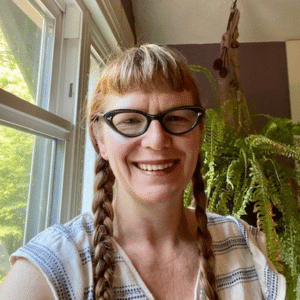Home visiting is a powerful tool for supporting families and communities, and the Washington State Home Visiting Core Competencies are an essential tool to support home visitors. The translation of Washington’s Home Visiting Core Competencies into Spanish, Chinese, Somali, and Arabic is a significant step in ensuring that the competencies are accessible to home visitors in the languages they use and prefer.

Expanding Access and Inclusion in Home Visiting: The Power of Core Competencies Translations
Developed with input from 350+ professionals, the Core Competencies now have expanded translations, making them more accessible and inclusive. Learn how this effort advances inclusion in home visiting from our expert Cassie Morley.
Stay Connected
Sign up to receive the latest early learning program and policy news in Washington state.
“Created by the field, for the field, the core competencies are intended to be a ‘living’ set of resources that meet the needs of the professionals doing this critical work,” explains Cassie Morley, Assistant Director for Home Visiting at Start Early Washington. These core competencies were crafted with deep engagement from the home visiting community, with over 350 professionals helping to shape them, ensuring that they truly reflect the work and values of the field. “Those documents and those ideas really do belong to them,” Cassie emphasizes. “It seems only fitting that we would try our best to make sure they are available in the languages that that group of people reads and speaks and prefers to take in information in.”
Translating the competencies into these four languages was guided by the home visiting field itself, following the same collaborative and inclusive spirit in which they were initially developed.
By making these resources available in multiple languages, we are reaffirming the commitment to ensuring that all home visitors, regardless of linguistic background, can engage fully with the competencies that define their profession.
Cassie Morley, ASSISTANT DIRECTOR OF HOME VISITING, START EARLY WASHINGTON
A Living, Evolving Resource
These core competencies were never meant to be static documents. “They weren’t intended to sit on a shelf and gather dust,” Cassie notes. “They are for use by the people who created them.” Home visitors are encouraged to annotate them, add notes, and continuously reflect on how these competencies apply to their daily work. The process of refining and updating them is intended to be ongoing by design, informed by feedback from the field. Understanding how the competencies are being used will shape future revisions, with the ultimate goal being to ensure that they remain relevant and actionable, supporting home visitors in their mission to strengthen families and communities.
Home Visiting as a Tool for Inclusion
At its heart, home visiting exists to create trusting relationships between home visitors and parents. One of the clearest ways to achieve this mission is by hiring and supporting trusted professionals from within the communities being served. “What is synonymous with quality in home visiting is DIB (Diversity, Inclusion, and Belonging),” Cassie states. “You can’t really pull those things apart.” The translation of the competencies is a direct reflection of this understanding—ensuring that home visitors from diverse backgrounds have the tools they need in the languages they are most comfortable with.
Bringing Core Competencies to Life
With the core competencies now available in multiple languages, the hope is that home visiting teams will actively engage with them. “I absolutely want home visiting programs to take them up, have discussions about them within their teams, and talk about the ideas represented there,” shares Cassie. “If they feel as if the ideas are important, I want home visitors and their supervisors to talk about how they are turning those ideas into action.”
By making the Washington Home Visiting Core Competencies accessible in Spanish, Chinese, Somali, and Arabic, we are not just translating words—we are reinforcing the values of inclusivity, and community-centered care. These competencies are meant to be dynamic, evolving, and, most importantly, used by the very people who shaped them. The more they are discussed, applied, and adapted, the stronger the home visiting field will be in achieving its ultimate mission: empowering families and communities through trusted, culturally responsive support.
About the Author

Cassie Morley
Assistant Director for Home Visiting at Start Early Washington
Cassie Morley supports Start Early Washington’s team of State Model Leads by providing home visiting technical assistance and thought leadership to systems partners in Home Visiting.
Washington State Hub
Learn more about our work in Washington state and access relevant resources and publications.
Stay Connected
Stay up to date on early childhood policy issues and home visiting programming in Washington state.
Resources for Professionals
From interactive courses to engaging events, we support educators in building powerful practices that transform teaching and learning.
